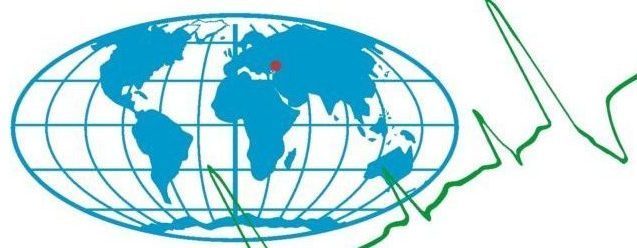A.N. Ramazin
Russian Federal Research Institute of Fisheries and Oceanography (VNIRO), Russian Federation, Moscow, V.Krasnoselskaya St., 17
E–mail: ramazin@vniro.ru
DOI: 10.33075/2220-5861-2018-4-33-42
UDC 551.46
Abstract:
Some results of experimental studies of metrological characteristics of temperature sensors made with using a complex of foreign precision calibration equipment are considered on five samples of various models of Sea Bird СTD probes.
The analysis of the contribution of individual components into total uncertainty is given. The values of the total uncertainty of SPTS uΣO and the total uncertainty due to the spatial-temporal heterogeneity of the temperature field in the working area of the calibration uΣT could be considered as practically constant or slightly changeable values. Their total value will mainly determine the magnitude of the total uncertainty in the calibration of temperature sensors of a measuring instrument in the thermal tank.
For these models, the experimental data were used to calculate characteristics of the dependences of the sensitivity coefficient ∂f/∂T, the standard deviation of the input signal (frequency) s(fi), and the sensor readings on the temperature in the thermal tank. Their functional relationship is analyzed.
The analysis of the temporal walk of SPTS readings and temperature sensors of СTD probes “Sea Bird” between the calibrations is performed. The time maintenance of the SPTS calibration characteristics, which is the working standard of the 0th category, does not exceed 0.1 mK/year. The temporal annual maintenance of the calibration characteristics of the considered models of CTD probes between two calibrations does not exceed the value of the extended calibration uncertainty.
Keywords: reusable measurements, temperature sensor, calibration, CTD probe, standard, total and extended uncertainty, sensitivity coefficient, standard deviation, uncertainty interval, time walk.
LIST OF REFERENCES
- GOST 8.558-93 GSI. National verification scheme for measuring instruments of temperature. Interstate Council for standardization, Metrology and certification. Standards publishing house. 1994. P. 16.
- Ramazin A. N., Levashov D. E. Guidelines for the calibration and metrological support of measuring parameters of the aquatic environment. Moscow: VNIRO publishing House. 2016. P. 127.
- Ramazin A. N. Some scientific and methodological aspects of metrological support for measurements of electrical conductivity and temperature of sea water using STD probes / / Tr. VNIRO. 2016. Vol. 159. P. 167-182.
- Levashov D. E. technique of expedition research: instrumental methods and technical means for assessing fishing-significant environmental factors. Moscow: VNIRO publishing House. 2003. P. 400.
- Pokhodun A. I. Experimental research methods. Measurement errors and uncertainties. Textbook. Saint Petersburg: ITMO state University. 2006. P. 112.
- Guide to expression of uncertainty of measurement: Translated from English. under the table. Sleeve editorship of Professor V. A. VNIIM im. D. I. Mendeleeva, St. Petersburg. 1999. P. 134.
- Moiseeva N. P. Uncertainty of temperature measurement and temperature difference taking into account correlation. Measuring equipment, No. 11, 2010. http://temperatures.ru/pdf/Moiseeva2010-2.pdf
- Mangum B. W., Furukawa G. T. 1990. Guidelines for realizing the international temperature of 1990 (ITS‑90) // NIST Tech. Note 1265. P. 190.
![]()
